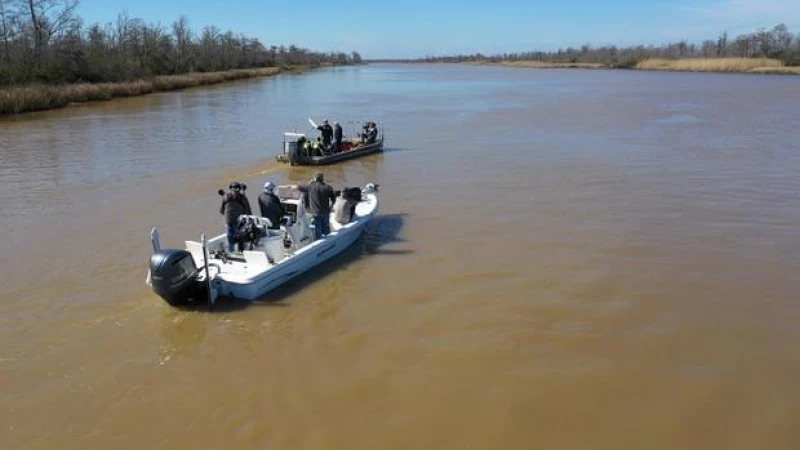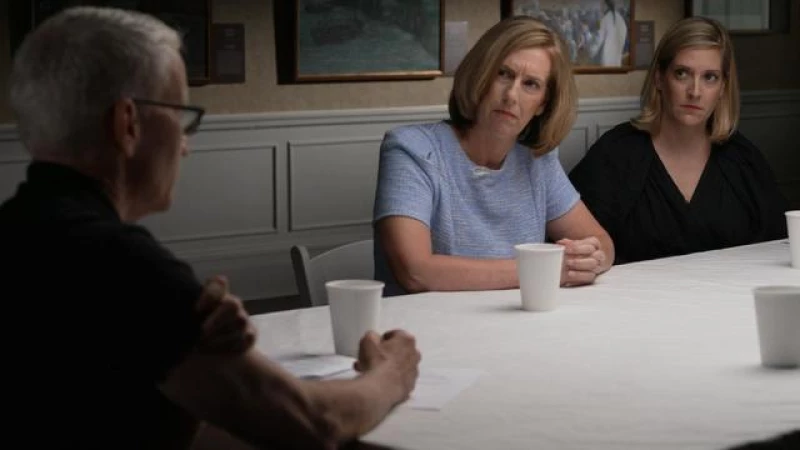Descendants of Enslaved Africans and Slave Owner Meet for Reconciliation
Descendants of enslaved Africans and descendants of the slave owner who funded their journey to America came together in a historic meeting to discuss reconciliation over the summer. After years of effort to arrange the meeting, it finally took place.
The descendants of Timothy Meaher, a slave owner from Alabama who hired Captain William Foster to transport 110 captive Africans on his ship, Clotilda, had previously refused to meet with the descendants of those who were enslaved and brought to the United States.
However, a new generation of the Meaher family took control of the family business last year and began exploring ways to make amends. Over the past year, they have been actively seeking reconciliation.
What was the Clotilda?
In 1860, when Timothy Meaher hired Captain Foster, slavery was still legal in the southern United States. However, importing enslaved individuals into America had been prohibited since 1808. Meaher sent the ship to the Kingdom of Dahomey in West Africa, where Foster documented purchasing the captives using "$9,000 in gold," as mentioned in his journal.
The Clotilda, a ship carrying enslaved Africans, arrived in America after a 45-day journey. The 110 men, women, and children were handed over to Timothy Meaher and his brother. To conceal the crime, Foster, the captain of the Clotilda, burned and sank the ship.
The Clotilda is recognized as the last known ship to transport enslaved Africans to America.
What happened to the enslaved Africans?
After five years of slavery, the Clotilda survivors were freed. Among them was Kossula, also known as Cudjo Lewis. The survivors requested Timothy Meaher's assistance in returning to Africa, but he refused. In 1914, Kossula mentioned that Meaher also attempted to impede their voting rights. Some of the survivors found employment in a sawmill owned by Meaher.
In 1868, thirty freed Africans from the Clotilda founded Africatown, which remains the only surviving community in America established by Africans. Presently, some of their descendants still reside there.
Africatown today
Africatown's population has decreased to around 800 individuals from its peak of 12,000 in the 1960s. The construction of an interstate highway in the early 1990s divided the community, leaving small clusters of homes surrounded by factories and chemical plants.
According to tax records, Timothy Meaher's descendants still possess approximately 14% of the land in historic Africatown. Their name can be found on nearby street signs and property markers. Court documents estimate the value of their real estate and timber businesses to be $36 million.
The wreckage of the Clotilda was discovered in a nearby part of the Mobile River in 2018, with maritime archaeologists confirming the ship was the Clotilda the following year.
Since the Clotilda's discovery, some $10 million in city, state, federal and philanthropic funds have gone into the revitalization of Africatown.
But even after the Clotilda's discovery, descendants of Meaher refused to meet with the descendants of the enslaved Africans brought on the ship. When 60 Minutes reached out to four members of the Meaher family in 2020, they all either declined or didn't respond to requests for an interview.
A historic change
This past July, some of the descendants met in a conference room at Mobile's history museum. Pat Frazier, the great great granddaughter of Lottie Dennison, was among them. Frazier was representing the Clotilda Descendants Association, along with Joycelyn Davis and organization President Jeremy Ellis.
"I previously thought that this day would never happen, ladies," Frazier said. "Because people kept saying, 'The Meahers have kept quiet,' you know? 'We've tried to approach them. They've only spoken through their lawyers.'"
The Clotilda descendants sat across from Meg Meaher and her sister Helen, great great granddaughters of Timothy Meaher.
Family Breaks Silence on Ancestral Wrongs
"We were silent for far too long and we were distant for far too long," a family member said. "And we're very happy to be able to finally break the silence and to narrow the distance."
Another family member addressed their family's silence up until now.

"Our family, it's like some other families. We have lots of layers, and complexities, and you know some dysfunctions, and we have been in like, a lawsuit, like, among family members," they said. "And that finally resolved just a year ago. So, like, now, it's, you know, really, it's our generation that's been able to, like, step up."
The family member grew up just a few miles from Africatown, but they had never been there until last year, when they started volunteering at a food bank. In 2021, they sold a plot of land in Africatown to the City of Mobile for $50,000, a fraction of its appraised value. It will be home to community development organizations and a new food bank.
They hope that in 10 years, Africatown will be a thriving community.
Others don't hold the family members responsible for what their ancestor did.
"However, I want them to recognize how that behavior benefited them and worked to the disadvantage of us," they said. "Just like they've had multiple generations of wealth, the original slaves and their descendants haven't."
Reconciliation, not reparations
The Clotilda descendants at the meeting emphasized that their goal was reconciliation, not reparations.
"I have a daughter and I believe that she should have the same level of education that the Meaher family experienced," stated Ellis. "We believe that the same level of education should be provided to all descendants."
They also believe that there are parcels of land in historic Africatown that they should have ownership in.
Helen Meaher, who recently took on a role in her family, is uncertain if her family is profiting from any land in Africatown. She expressed the need to review the situation.
"We're still keeping an open mind and working on figuring out next steps," she said. "And I'm not shutting a door on anything."
The meeting between the descendants lasted approximately two hours. While no financial commitments were made, the Meahers have started removing their property markers and are consulting with financial planners and local groups to determine their next course of action.
"They've come to the table, trying to do the right thing," Ellis acknowledged. "And they want to be intentional with the decisions that are made. So I totally understand that perspective."
The Clotilda descendants call for nationwide conversations on reconciliation
A group of descendants of the Clotilda, the last known ship to bring enslaved Africans to the United States, are urging for similar conversations on reconciliation to be held across the nation. The descendants recently held a meeting to discuss their shared history and the need for healing.
"My hope is that this can be an example of what reconciliation looks like, for the nation, as well as start the healing process for a number of descendants," said one of the descendants, Ellis.






